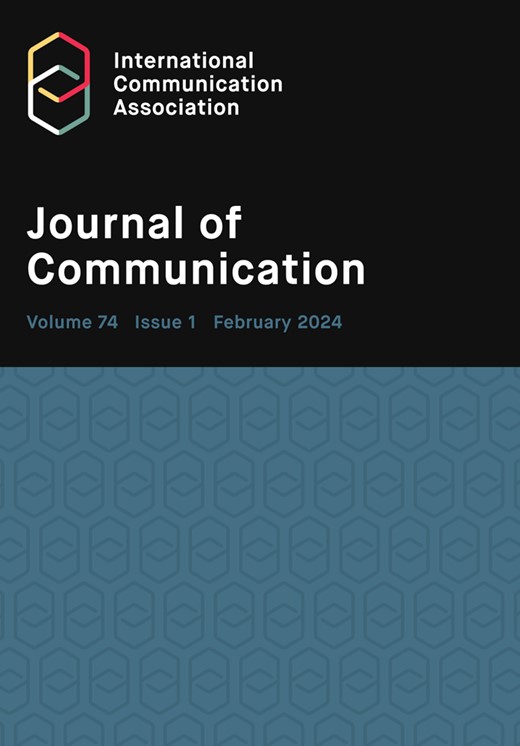Is artificial intelligence more persuasive than humans? A meta-analysis
IF 5.5
1区 文学
Q1 COMMUNICATION
引用次数: 1
Abstract
The rapid deployment of artificial intelligence (AI) technology has enabled AI agents to take on various roles as communicators, such as virtual assistants, robot journalists, and AI doctors. This study meta-analyzed 121 randomized experimental studies (N = 53,977) that compared the effects of AI and human agency on persuasion outcomes, including perceptions, attitudes, intentions, and behaviors. The results showed that AI agents were as persuasive as humans in terms of overall persuasion outcomes. With regard to different types of outcomes, AI was less effective than humans at shaping behavioral intentions, but did not differ significantly from humans in eliciting perceptions, attitudes, or actual behaviors. Additionally, heterogeneous patterns were observed for different roles of AI communicators, directions of communication, experimental settings, and demographic segments. The implications of these findings for human–machine communication and persuasion in the era of AI are discussed.人工智能比人类更有说服力吗?一个荟萃分析
随着人工智能(AI)技术的迅速发展,人工智能代理可以扮演虚拟助手、机器人记者、人工智能医生等多种角色。这项研究荟萃分析了121项随机实验研究(N = 53,977),比较了人工智能和人类代理对说服结果的影响,包括感知、态度、意图和行为。结果显示,就整体说服结果而言,人工智能代理与人类一样有说服力。就不同类型的结果而言,人工智能在塑造行为意图方面不如人类有效,但在引发感知、态度或实际行为方面与人类没有显著差异。此外,人工智能传播者的不同角色、传播方向、实验环境和人口细分也存在异质模式。讨论了这些发现对人工智能时代人机沟通和说服的影响。
本文章由计算机程序翻译,如有差异,请以英文原文为准。
求助全文
约1分钟内获得全文
求助全文
来源期刊

Journal of Communication
COMMUNICATION-
CiteScore
11.60
自引率
5.10%
发文量
41
期刊介绍:
The Journal of Communication, the flagship journal of the International Communication Association, is a vital publication for communication specialists and policymakers alike. Focusing on communication research, practice, policy, and theory, it delivers the latest and most significant findings in communication studies. The journal also includes an extensive book review section and symposia of selected studies on current issues. JoC publishes top-quality scholarship on all aspects of communication, with a particular interest in research that transcends disciplinary and sub-field boundaries.
 求助内容:
求助内容: 应助结果提醒方式:
应助结果提醒方式:


